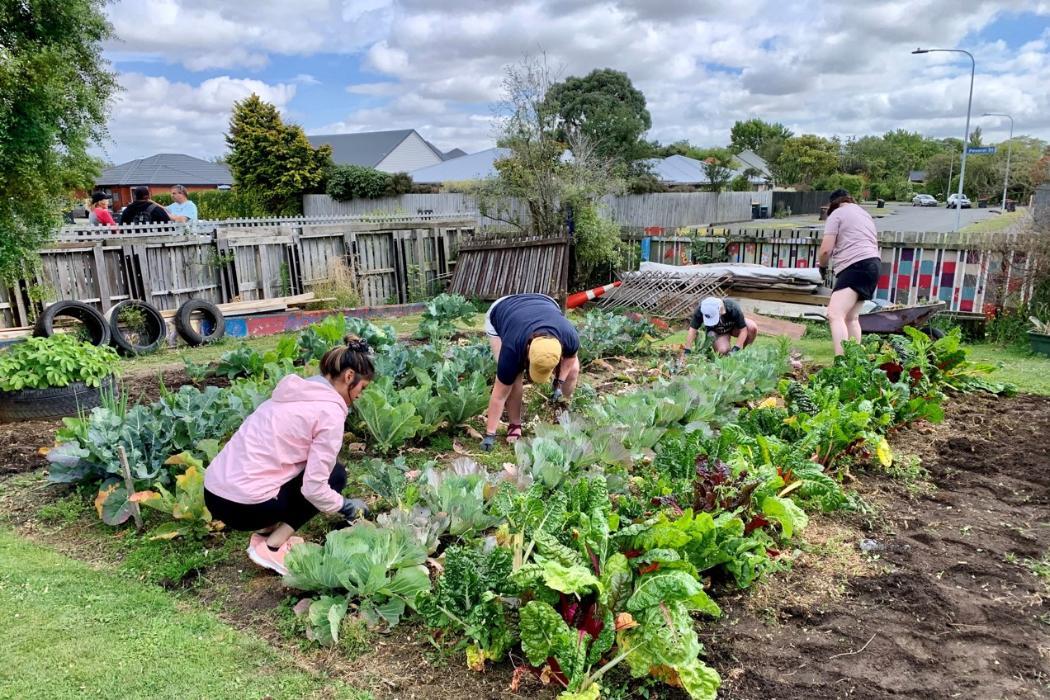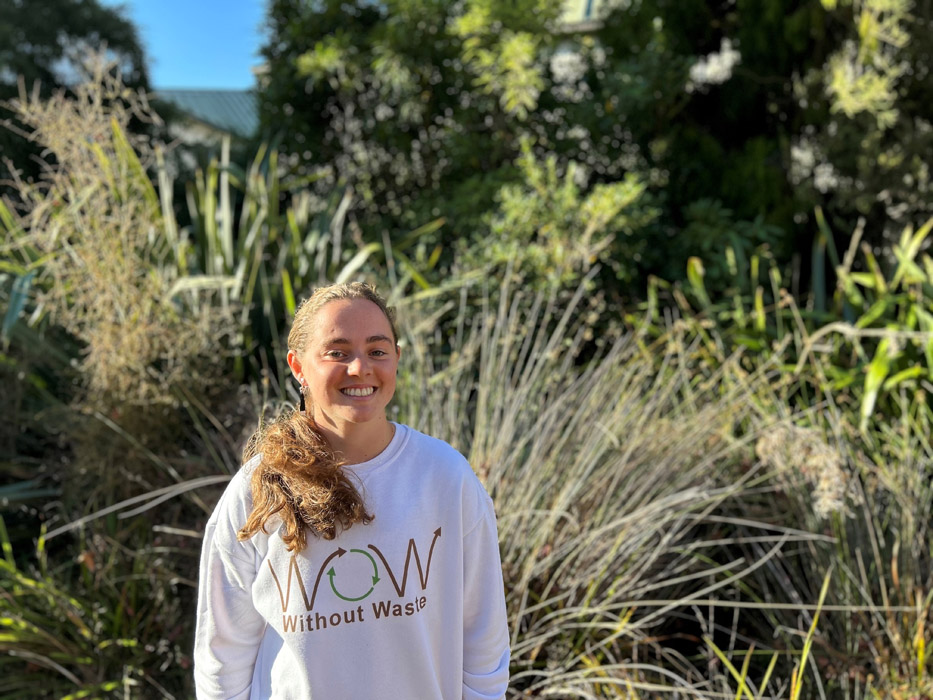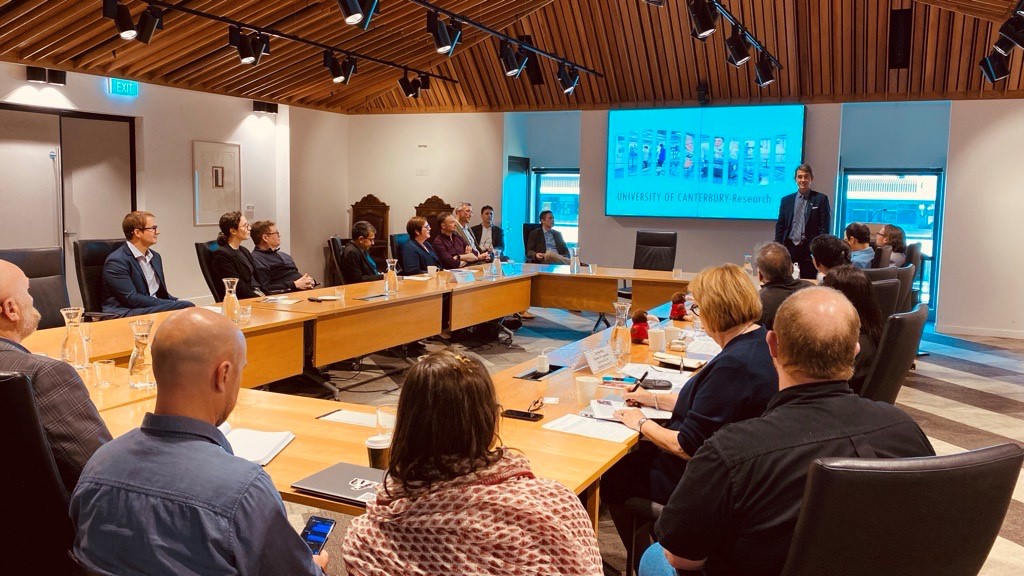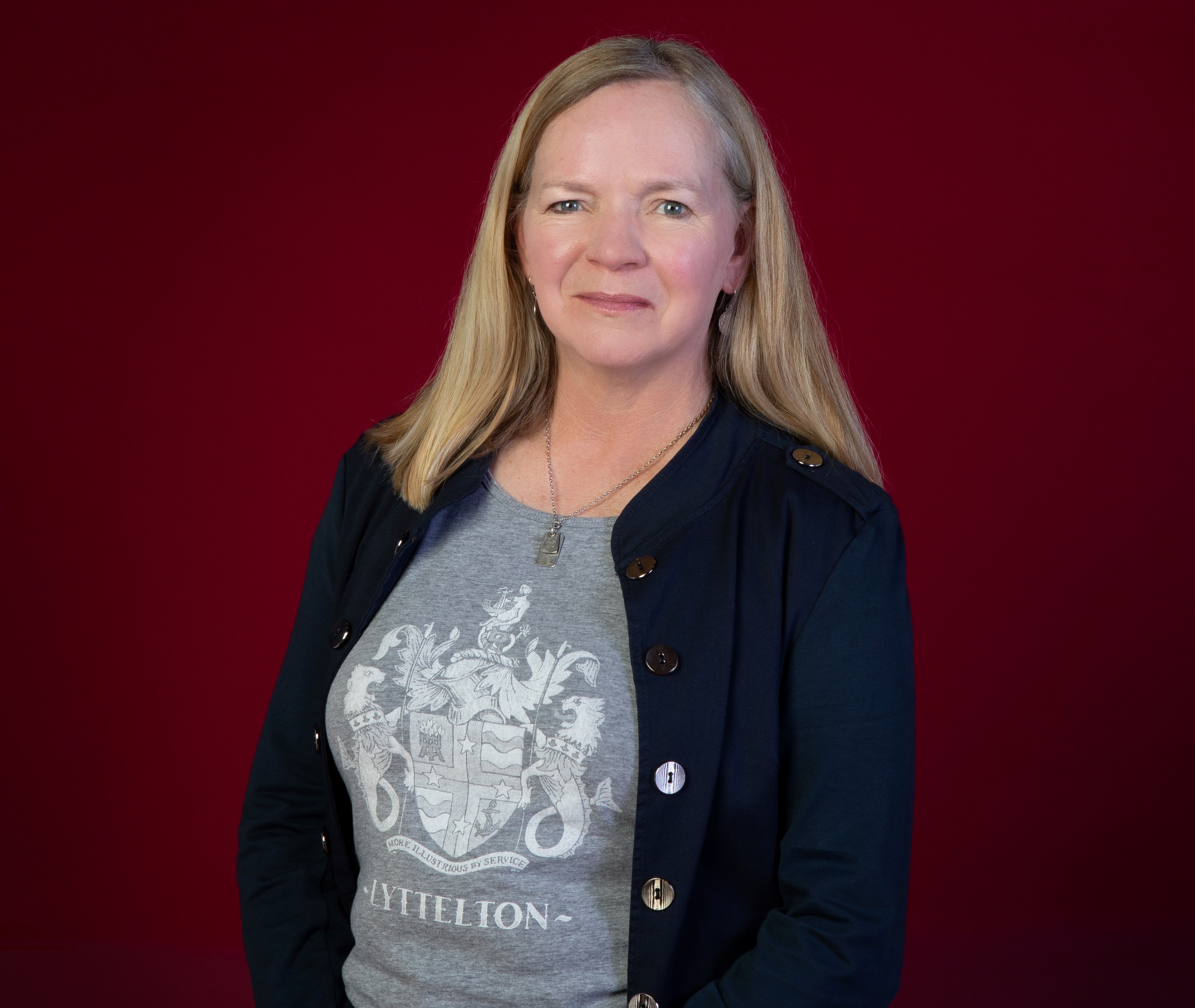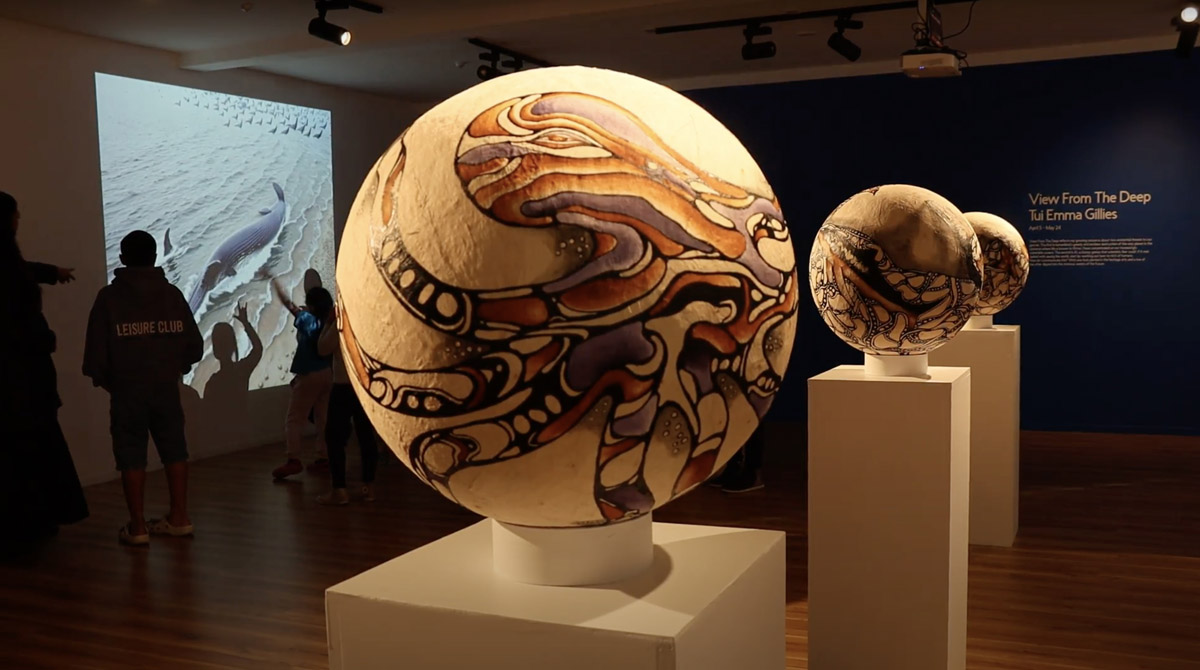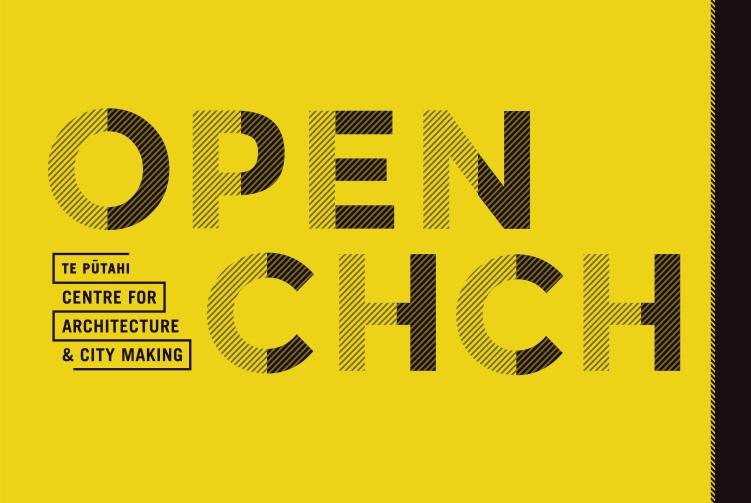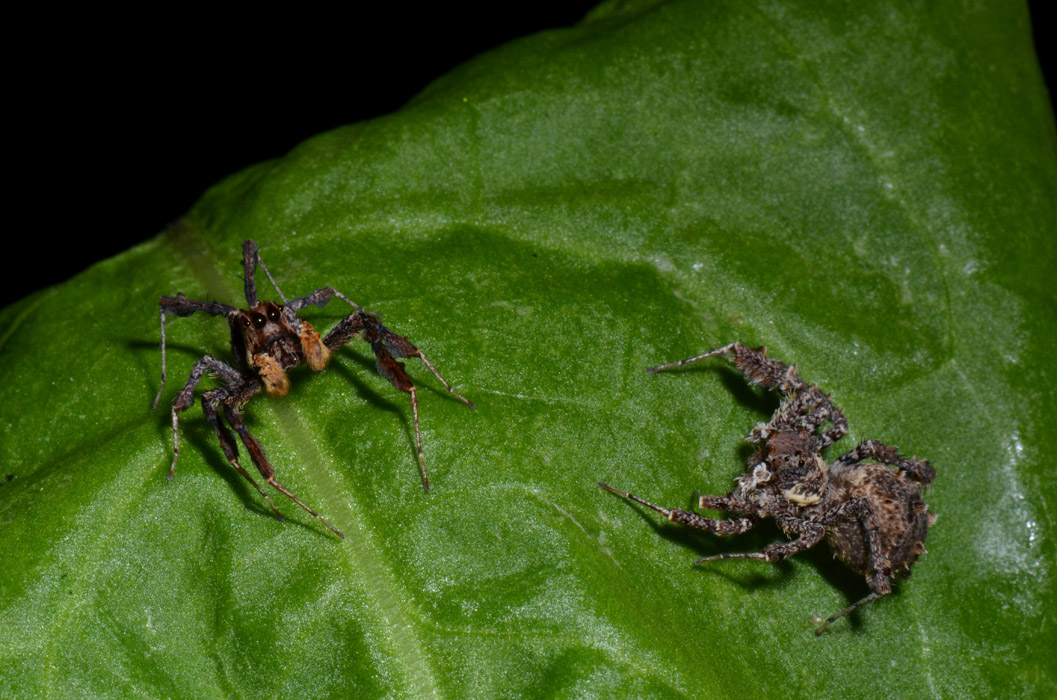Emergency management students from Utah Valley University staff and students got some hands-on learning during their visit to UC this week, working at the Riccarton West Community Garden, which was created after the Canterbury earthquakes.
The 24 visitors, who are students at Utah Valley University, are hosted by Associate Professor Billy O’Steen, along with former UC staff member Chris Hawker, and PhD alumni Dr Dolapo Fukuade.
“This is the third time that students and staff from Utah Valley University have visited the University of Canterbury as part of their emergency management graduate program,” Professor O’Steen says. “They have found the Christchurch context particularly rich with regard to how UC and other organisations have responded to the 2010 and 2011 earthquakes. This is a great example of UC sharing our unique expertise and experiences with others from around the world.”
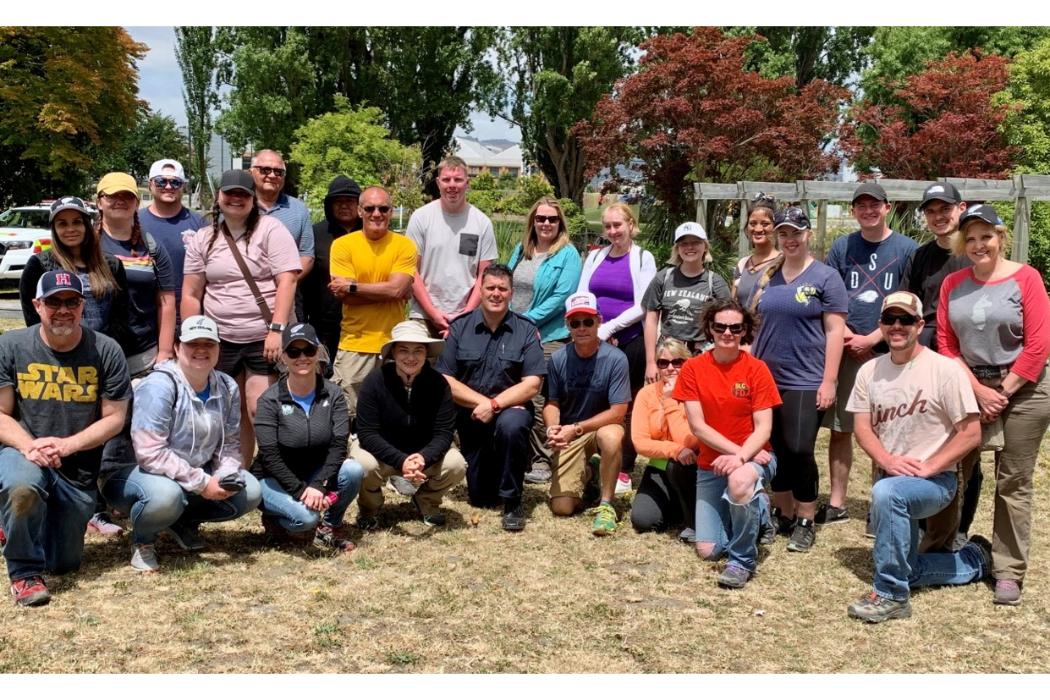 Firefighters and police from Utah, United States, were amongst a group of emergency management students taking lessons about UC’s post-earthquake initiatives this week.
Firefighters and police from Utah, United States, were amongst a group of emergency management students taking lessons about UC’s post-earthquake initiatives this week.
Associate Professor O’Steen recently contributed to the creation of UC’s new Bachelor of Youth and Community Development, and is an expert in community engagement, youth volunteering and curriculum design in the College of Education, Health and Human Development. One of Canterbury’s key experiences in post-quake emergency management, he says, was the emergence of youth initiatives such as the Student Volunteer Army.
“After the earthquakes I developed the ‘POP model’ for disaster response that has three components: purpose, opportunity and preparation. The Student Volunteer Army was a good case study in seeing these components and then being able to transfer how one can align their own purpose with addressing an opportunity and what preparation do they need to be most effective.”
As an example of the potential impact of this model, he cites the effect the course Strengthening Communities through Social Innovation (CHCH101) had on Jessica Weston, a US study abroad student who was at UC for semester 1, 2013.
“Jessica learned about the Student Volunteer Army. She left UC wanting to positively impact her home university, the University of Illinois. Within two months of arriving back in the US, her hometown of Washington, Illinois was hit by devastating tornadoes. She quickly went into action and created a fill-the-truck campaign that filled up two truckloads of needed supplies. She says that her inspiration to do so stemmed from taking CHCH101 and from the Student Volunteer Army.”
During their visit, the Utah Valley University staff and students were introduced to community spaces created since the earthquakes. They worked at the Riccarton West Community Garden, created by CHCH101 students, local residents and the Neighbourhood Police Team, and the Family Recovery Garden in the city centre, which was created as a sanctuary for families struggling with addiction, loss and mental illness.
Associate Professor O’Steen regularly hosts international groups and is passionate about sharing his knowledge and experience. “We can all consider the value of our lived experiences and how those experiences can inform others who are not from here to make a difference in their communities.”
